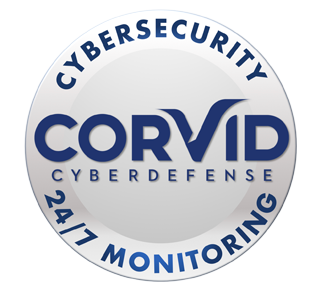 Many families have plans to give their children and grandchildren financial gifts when they die, but it might make sense to gift earlier. Making financial gifts during your lifetime can significantly impact their lives, sometimes when they need it most. It also provides you with the benefit of seeing your loved ones enjoy your gifts.
Many families have plans to give their children and grandchildren financial gifts when they die, but it might make sense to gift earlier. Making financial gifts during your lifetime can significantly impact their lives, sometimes when they need it most. It also provides you with the benefit of seeing your loved ones enjoy your gifts.
Perhaps your plan is more financially focused. If you believe your estate might owe estate tax, gifting assets to your heirs throughout your life, rather than waiting until death, can be a powerful way to reduce the amount of taxes ultimately paid by your estate.
In 2021, an individual can transfer a total of $11.7 million at death or during their lifetime free from federal gift and estate taxes. Together, a married couple can transfer twice that amount—$23.4 million—free of tax. The current tax law allows you to give certain gifts that don’t count against your gift and estate tax exemption amount. They also don’t require filing a gift tax return, so maximizing these “free” gifts is typically the first place to start with lifetime gifting.
Annual Exclusion Gifts: The annual exclusion allows you to make tax-free gifts up to $15,000 per donor/recipient to an unlimited number of individuals each year.
Medical and Educational Gifts: Another way to make tax-free gifts is to make a direct payment for a child’s or grandchild’s medical or educational expenses. Payments made directly to a medical services provider (for example, doctor, hospital) or an educational institution for tuition aren’t treated as taxable gifts.
529 College Savings Plans: A 529 College Savings Plan is like a retirement plan for education. The main advantage of a 529 plan is that the money grows in your account free of federal income tax. Under federal tax rules, the funds must be used for qualified higher-education expenses, such as tuition, books, and room and board.
Trusts: There is no restriction on the type of property that can be held in a trust. And trusts offer a great deal of flexibility as to when a child or grandchild will ultimately receive the trust benefits. Assets held in trust can be shielded from creditors and arguably provide the best way to ensure a family’s wealth remains with the family.
Creating a strategy that’s unique to your situation requires planning. Call us today at (540) 720-5656, and let’s work out an estate plan for you and your heirs.























 Megan Jones joined the ILG Financial team in 2020 as marketing director. Megan and her husband live in Fredericksburg, VA with their German Short Haired Pointer, Gus. Megan is a graduate of Longwood University and holds a degree in communications. Megan is the oldest of Dave Lopez’s three children and not only enjoys working alongside her father, but also with her cousin, Chase, who joined the ILG Financial team in 2020 as an advisor. Megan is also a fully licensed Life, Health, and Annuity agent. When not at work, Megan enjoys sitting on the back porch with family and friends enjoying food and music.
Megan Jones joined the ILG Financial team in 2020 as marketing director. Megan and her husband live in Fredericksburg, VA with their German Short Haired Pointer, Gus. Megan is a graduate of Longwood University and holds a degree in communications. Megan is the oldest of Dave Lopez’s three children and not only enjoys working alongside her father, but also with her cousin, Chase, who joined the ILG Financial team in 2020 as an advisor. Megan is also a fully licensed Life, Health, and Annuity agent. When not at work, Megan enjoys sitting on the back porch with family and friends enjoying food and music. Chase Lopez joined the ILG Financial team in 2020 as an advisor. Chase is a 2016 James Madison University graduate with a degree in management. Chase has been trained under the tutelage of Dave Lopez, who is not only the founder and managing member of ILG Financial, but also is Chase’s uncle and godfather. He also enjoys working alongside his cousin, Megan, who is Dave’s daughter.
Chase Lopez joined the ILG Financial team in 2020 as an advisor. Chase is a 2016 James Madison University graduate with a degree in management. Chase has been trained under the tutelage of Dave Lopez, who is not only the founder and managing member of ILG Financial, but also is Chase’s uncle and godfather. He also enjoys working alongside his cousin, Megan, who is Dave’s daughter. Amy Anderson joined the ILG Financial team in 2023 as the client relations coordinator. Her responsibilities include scheduling of appointments, annual check-up notifications, and annuity and required minimum distribution assistance. She is a graduate of Harding University with a degree in Computer Information Systems. Amy and her husband have two children and she enjoys reading, crocheting, music and spending time with her family.
Amy Anderson joined the ILG Financial team in 2023 as the client relations coordinator. Her responsibilities include scheduling of appointments, annual check-up notifications, and annuity and required minimum distribution assistance. She is a graduate of Harding University with a degree in Computer Information Systems. Amy and her husband have two children and she enjoys reading, crocheting, music and spending time with her family. Jessica Carson joined the ILG Financial team in 2018 as an agent. Jessica and her husband have four children, two dogs, 3 barn cats, 5 chickens, and three parakeets. She indeed loves her children and pets! When not at work, Jessica enjoys playing the piano and cello as well as traveling and spending time outside with her family, hiking, fishing, and boating.
Jessica Carson joined the ILG Financial team in 2018 as an agent. Jessica and her husband have four children, two dogs, 3 barn cats, 5 chickens, and three parakeets. She indeed loves her children and pets! When not at work, Jessica enjoys playing the piano and cello as well as traveling and spending time outside with her family, hiking, fishing, and boating. Terri Center joined the ILG Financial team in 2019 as client services manager. She handles client records, application processing, and gathering information to provide a professional and friendly experience with all of our clients. Terri is a graduate of Oakland University. She is married and has two children. She enjoys hiking, family time, and puzzle challenging video games. She also likes to share her creativity in her canvas paintings and sewing projects.
Terri Center joined the ILG Financial team in 2019 as client services manager. She handles client records, application processing, and gathering information to provide a professional and friendly experience with all of our clients. Terri is a graduate of Oakland University. She is married and has two children. She enjoys hiking, family time, and puzzle challenging video games. She also likes to share her creativity in her canvas paintings and sewing projects.